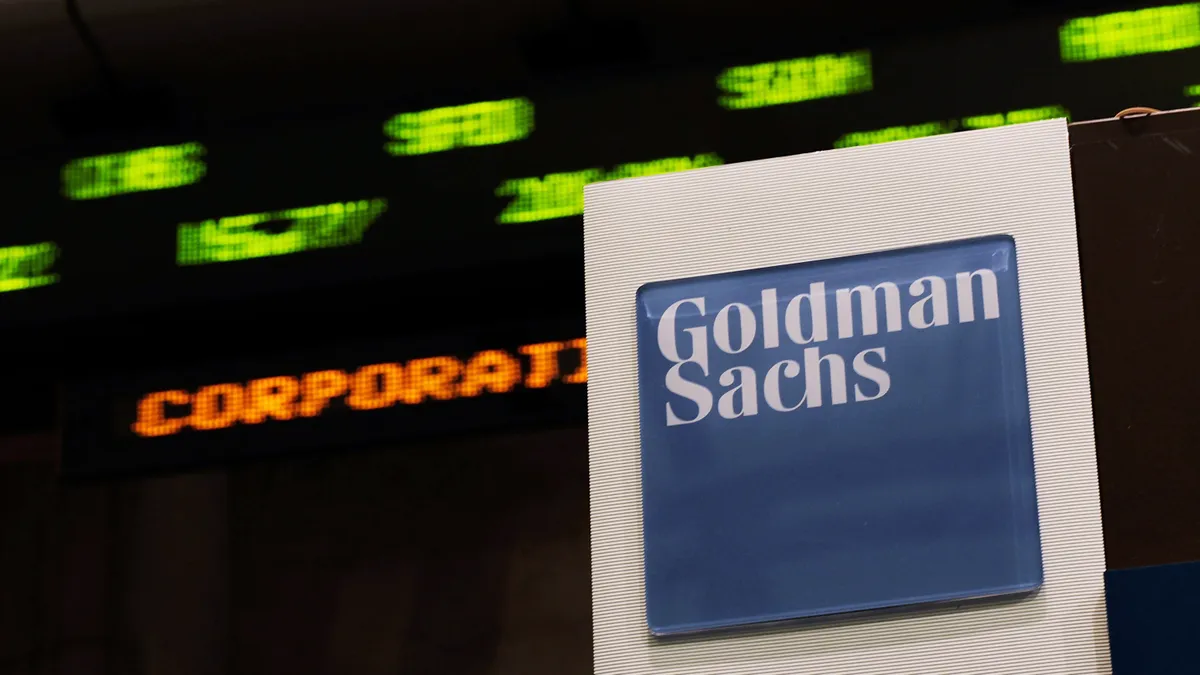UPDATE: Aug. 10, 2021: Wells Fargo is pushing base salaries for first-, second- and third-year analysts up by $15,000, according to Business Insider. Effective retroactive to July 1, first-, second- and third-year analysts will now be paid $100,000, $105,000 and $110,000 respectively. Wells Fargo associates are also receiving raises; first-year associates will get $175,000, second-year associates $200,000, and third-year associates $225,000.
“We can confirm the adjustment of base pay in certain client-facing positions across the Corporate and Investment Bank, which ensures we remain competitive and aligned with market practices,” a Wells Fargo spokesperson told Banking Dive. “We are committed to offering compensation that attracts, motivates, and retains talent.” The spokesperson did not confirm specific salary amounts.
JPMorgan Chase has expanded its planned pay increases to include additional positions, according to Bloomberg. Junior sales, trading and research analysts at the nation’s largest bank will see their salaries rise from $85,000 to $100,000, effective February.
Dive Brief:
- After months of internal deliberation, Goldman Sachs has decided to join other major investment banks that have recently raised pay for entry-level employees, according to Bloomberg.
- Goldman Sachs’s first-year analysts will receive a bump in base pay from $85,000 to $110,000; second-year analysts $95,000 to $125,000; and first-year associates $125,000 to $150,000, sources told Bloomberg.
- Goldman Sachs has been scrutinized over the salary issue ever since a slide deck circulated online this February, a self-selected survey of 13 junior bankers at Goldman Sachs who claimed to be working 98-hour weeks regularly and sleeping an average of 5 hours a night.
Dive Insight:
The fiscal year for the Goldman Sachs Group ended July 31, and executives have decided to bump pay for junior bankers. Goldman Sachs was one of the last holdouts among major investment banks, resisting increasing wages for entry-level employees in a booming business environment. Now, the company is joining its rivals including JPMorgan, Morgan Stanley, UBS and Credit Suisse in rewarding their junior employees.
Investment banking is a career infamous for grueling hours, but recent months have proven to be particularly frenetic for entry-level bankers. Mergers and acquisitions are flourishing, due in part to the uptick in Special Purpose Acquisition Company activity.
Some new hires at Goldman Sachs feel themselves to be suffering from success. In February, a presentation by 13 junior employees at Goldman Sachs lamenting work-life balance at the company gained traction on social media. Most of the disgruntled employees who were surveyed reported deteriorating mental health and felt likely to quit within 6 months.
In March, Reuters reported that "a Goldman investment-bank analyst gets around $88,000 a year according to Glassdoor, or around $18 an hour assuming a 100-hour workweek." Although that figure is more than twice the federal minimum wage, in New York City the fast-food industry has a minimum wage of $15 an hour.
Junior pay has been the subject of heated debate among executives at Goldman Sachs, according to the Financial Times. Some executives have warned that raising wages will attract money-hungry "mercenaries." However, tech companies touting similar pay and superior work-life balance have become a major competitive force in the hiring market for big banks. And Goldman Sachs must contend with rival banks like Citigroup, which will allow employees to work from home two days a week after the pandemic.
After the slide deck released, several of Wall Street’s largest banks immediately upped their pay for junior employees. But Goldman Sachs refused to budge, and in the second-quarter earnings call CEO David Solomon stated "we revaluate salaries in regular course every single year and when appropriate, we make sure our salaries are competitive. So, we continue to thrive by having the best people here and paying them appropriately, especially when we perform. We are performing ... expect to see us pay appropriately during our normal cycle."
Goldman Sachs's salary hike for first-year analysts to $110,000 outstrips numerous rivals like Morgan Stanley and Citigroup, which recently raised pay to $100,000. Because wages are usually synchronized across the investment banking industry, this move puts upward pressure on entry-level salaries at several large banks.











